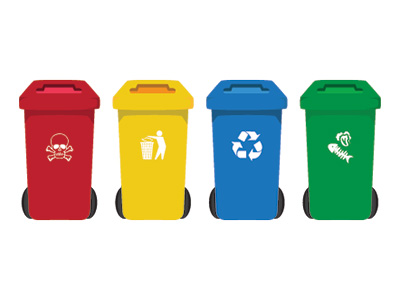
In a case more notable for the fact that it reached Idaho’s Supreme Court than the final decision, the lower court’s dismissal of the plaintiff waste disposal company’s misappropriation of trade secrets claim was affirmed.
In July of 2012, the defendant County of Idaho (“the County”) solicited proposals for a contract to provide waste disposal services to part of the county that was being served by the plaintiff Walco, Inc. (“Walco”). Both Walco and the other defendant, Simmons Sanitation Service, Inc. (“Simmons”), submitted envelopes containing their respective proposals. At a public meeting of the county commissioners, with a Walco representative present, both envelopes were opened and their respective monthly base rates were read aloud. Copies were made of the proposals, the proposals were reviewed, and the county commissioners held a short discussion with the Walco rep. The county commissioners held two more discussions about the proposals at public meetings attended by both Walco and Simmons. In January of 2013, the contract was awarded to Simmons. In March, Walco filed suit against both the County and Simmons for misappropriation of trade secrets, alleging that the County and Simmons wrongfully misappropriated and used Walco’s proposal. On summary judgment, the lower court dismissed Walco’s claim.
The lower court found, and the Supreme Court affirmed, that Walco’s proposal was not a trade secret. But, not because bids or proposals cannot be trade secrets. Many other jurisdictions have found that bids or proposals can constitute trade secrets. For example, the Court of Appeals in Colorado upheld a jury’s determination that a bid was a trade secret in Ovation Plumbing, Inc. v. Furton. Similarly, in CDC Restoration & Construction v. Tradesmen Contractors, LLC, the Court of Appeals in Utah held that while a price list was not a trade secret, the plaintiff’s bid on a project did constitute a trade secret. Instead, the lower court ruled against Walco because it did nothing to protect its proposal. So what did Walco do wrong? Pretty much everything.
Walco contended that the dollar amount of its proposal was a trade secret. However, similar to most other jurisdictions, the statutory definition of a trade secret in Idaho requires the trade secret be “the subject of efforts that are reasonable under the circumstances to maintain its secrecy.” I.C. § 48-801(5)(b). Yet, the only evidence Walco could rely on to make this showing was: (1) a letter from June of 2012, months prior to the request for proposals was published, requesting that any Walco proprietary information be treated as exempt from public disclosure; (2) the fact that the envelope containing the proposal was shut with a piece of tape; (3) a vague allegation that the request for proposals could be understood as indicating that the dollar amounts of the proposals would not be announced at a public meeting; and (4) a statement made by one of Walco’s principals during the third public meeting discussing the two proposals allegedly objecting that Walco’s proposal was being misappropriated.[1] Clearly, no effort was made by Walco to “maintain [the proposal’s] secrecy” until it filed this lawsuit. This wasn’t a case of closing the barn door after the horse has bolted. It’s a case of giving someone the key to the barn door, watching as he opens the door to allow the horse to bolt, and then suing him for it. Walco did nothing to try and keep the horse in the barn.
So what could Walco have done to better protect its proposal as a trade secret? Here are a few possibilities:
- As noted by the Idaho Supreme Court, Walco could have marked the outside of the envelope as confidential, and immediately objected to the reading of the proposal at the first public meeting;
- In its June 2012 letter, Walco could have identified that any future bids or proposals should be held confidential and not disclosed to the public;
- Walco could have required the County to sign an NDA as part of the proposal submission;
- Walco should have included a cover letter with its proposal stating that its proposal was confidential and not to be publicly disclosed or shared with others outside of the County; and
- After the first public meeting where the proposal was disclosed without a Simmons rep present, Walco should have contacted the County, and any other people in attendance at the meeting, and advised them that the proposal was confidential and not be further disclosed to others.
Clearly, one man’s trash can be another man’s trade secret, but only if he takes reasonable steps to maintain its secrecy.
Now, what could the County have done to avoid this one-sided lawsuit in the first place? Simple, include as a condition for submitting proposals that all proposals will be deemed non-confidential information and disclosed publicly for evaluation and discussion.
[1] One would be hard pressed to consider the statements made by Walco’s principal at the third public hearing an objection that Walco’s trade secrets were being misappropriated. Her comments were directed to the fairness of the bidding process.

